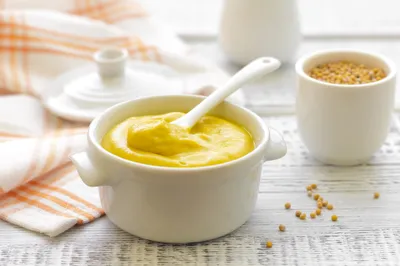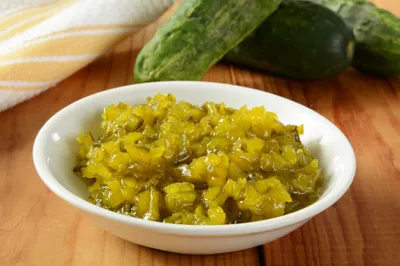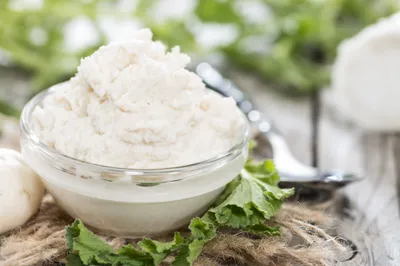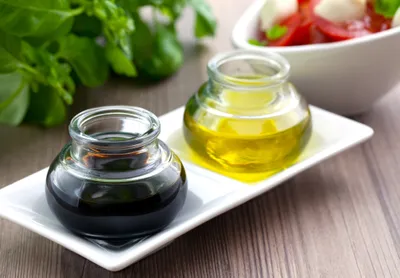A good majority of people use condiments religiously without much thought of what’s in them. Ketchup, vinegar, and hot sauces permanently adorn many restaurant table tops, and it’s fairly standard to cook with different condiments or have them ready to add at both restaurants and in your own home. But many of the most popular condiments don’t have much—if any—health benefits and are actually bad for you, contributing to or worsening medical conditions like high blood pressure and obesity. Whether you dress up your burger with all the standard fixings, always use a dip on the side, or slather foods in several condiments, you might want to cut back on a few of these favorites after learning how unhealthy they can be…
1. Ketchup
Ketchup is one of the most popular condiments out there and has been for a very long time. It’s rare to find someone who doesn’t use or pretty much require ketchup on everything, whether it’s their burgers, fries, eggs, sausages, hash browns, chicken fingers…the possibilities are vast. Unfortunately, like many popular foods ketchup’s popularity is not due to its high nutritional value. (And no, the fact that tomatoes are an ingredient doesn’t make it healthy).
Ketchup isn’t high in carbs or calories, but it does have a somewhat alarmingly high amount of sodium and high fructose corn syrup when you consider the small serving size. Plus, the salt content can contribute to high blood pressure and other cardiovascular diseases in the future. As for the high fructose corn syrup, an amount in each serving means you’ll be eating several grams of sugar (possibly more than 10, depending on how much you use) each time you eat it. Your best bet is to either cut back on how much you use and purchase a low sodium brand, replace it with fresh tomatoes, or make your own tomato topping to control what goes in it.
2. Mustard
Based on many other popular condiments you might assume that mustard falls into the same category as others relating to its sugar content. But it’s not common for the various types of mustard you can buy at your local grocer to contain liquid sugar, corn syrup, or high fructose corn syrup, a common problem among condiments. It’s mainly the sodium content per serving that makes mustard something to eat in moderation in order to limit its effect on your cardiovascular health. Or you can spring for the natural and organic brands that don’t have as much salt.
One ingredient to be on the lookout for in mustard is added flavors and colorings. Otherwise, you might be pleasantly surprised to learn that mustard contains a lot of ingredients that are good for you, including mustard seeds, turmeric, and paprika. For example, mustard seeds provide nutrients and antioxidants that may help prevent many serious diseases and reduce inflammation.
3. Mayonnaise
Contrary to popular belief, mayonnaise is the most popular condiment in the U.S., not ketchup. Its versatility lends itself to being used as a spread on burgers and sandwiches, a main ingredient in several sauces, and as a dressing in salads. Mayo is used in some popular side dish recipes that have been passed down and remind us of home-cooked meals and potlucks, like broccoli and potato salad, and deviled eggs. But while this item is found in most fridges across America, it’s not healthy.
Most mayonnaise is high in fat, calories, and sodium. Eating mayo regularly could contribute to a number of cardiovascular diseases, especially since most people eat more than the serving size of one tablespoon at a time. A single serving contains over 15-percent of your daily fat intake, so you can see it adds up quickly. If you don’t want to give up mayonnaise, try eating it in moderation and purchase the low fat option, which still includes a bit of the bad stuff but not as much unhealthy fat. Also try trading out mayo with Greek yogurt in sauces and dressings. You’d be surprised at how great this alternate option tastes.
4. Relish
Relish is another popular topping for burgers and hot dogs, but it’s not limited to these foods. With several varieties of relish, this condiment is also used on meats and in dressings and sauces (and even used as an ingredient for other condiments). There are two main health concerns with relish, its sodium and sugar content. This is a common problem with condiments, but also not surprising for relish because it’s pickled, and a lot of pickled foods contain copious amounts of sugar and salt.
The sodium in relish alone should keep you from eating too much of it because it may contribute to high blood pressure and heart disease, but there are some good things in relish that may balance out or at least offer some healthy aspect to the condiment. Sweet pickle relish is low in saturated fat and cholesterol, and if you make your own you can limit or eliminate salt and sugar. Fresh relish can be quite healthy for you, is full of flavor, and it’s fairly easy to make. Bottom line? Like many other condiments with unhealthy ingredients, moderation is key.
5. Barbecue Sauce
BBQ sauce is used on a lot of meats and as part of other sauces, but while this condiment is popular it’s actually one of the worst in terms of the sugar and salt that’s packed into each small serving. It often contains molasses, high fructose corn syrup, or honey (or a combination of sugary ingredients), and odds are you use more than the small single serving size. The sugar content in barbecue sauce contributes greatly to the taste, so it’s no wonder we go back for more by over-glazing our meats and thoroughly dipping food when it’s on the side.
It might be delicious and popular, but condiments like sugar-laden BBQ sauce found at the majority of grocery stores turn many healthy meals into something unhealthy. Not to mention it can contribute to some serious medical conditions. If you’re dieting, watching your weight, or simply trying to eat healthier, you’ll realize that many condiments quickly add up in calories. A mix of spices and herbs can be a healthy alternative for a meat rub to add flavor, or search for BBQ sauce with less sugar in health food stores.
6. Horseradish
Another popular condiment is horseradish, though it doesn’t rank high on any health scale. While horseradish roots and leaves have many healthy properties, what you buy in the store or make at home from other store bought bottles does not add up to a healthy condiment. Many pre-made jars of horseradish contain way too much sugar, salt, and saturated fats, culminating to a condiment that should be skipped…unless you make your own or find a store that sells a sugar-free horseradish.
On its own, some research has shown that horseradish may contribute to preventing cancer and detoxifying the body, and the plant has been used as a natural remedy for several ailments for years. So a natural horseradish without the sugar and other unhealthy ingredients could be very good for you. In the end, it’s all about the label. Knowing how to read the nutrition data, taking note of serving sizes, and knowing what unhealthy ingredients to look for goes a long way in understanding how healthy a bottle of horseradish can be.
7. Soy Sauce
Simply put, soy sauce has an extremely high sodium content that rivals other condiments, yet recent research has caused controversy about whether or not it’s bad for you. The research suggests the salt in soy sauce might be different than the salt that can contribute to cardiovascular conditions. But the jury’s still out on who’s right or wrong, and with just one teaspoon containing at least 15-percent of your daily recommended sodium intake it might not be worth the risk to your heart health.
There are a few other potentially unhealthy or unnecessary ingredients found in some brands of soy sauce, including coloring and corn syrup. Over the years the production process has been questioned due to the resulting presence of unwanted chemicals, but there haven’t been any major recalls due to health risks in Canada or the U.S. The production of soy sauce is also quite controlled and monitored, so the main risk is the amount of salt and how it could affect your health. One good thing about soy sauce is that you shouldn’t need much to get the salty flavor you’re looking for.
8. Vinegar
Anyone who loves either white, apple cider, or balsamic vinegar can breathe a sigh of relief. Vinegar is a popular and healthy condiment, a rare find amongst other condiments. Balsamic vinegar combines well with oil to make a fresh, light, and healthy salad dressing. Flavored balsamic vinegars are growing in popularity, giving you unique flavors while still being healthy. It’s a key component in the praised Mediterranean diet and unsurprisingly, it’s very low in calories and contains no fat. Many types of vinegars are also quite high in antioxidants and other healthy nutrients.
People often use white vinegar as a condiment on French fries, and even this use isn’t bad for you and won’t contribute to the unhealthiness of deep fried foods. There are other types of vinegars mostly used for cooking and that offer potential health benefits because of the all the good stuff found in them. So whether you use vinegar as a condiment (i.e., to make a dressing, drizzle balsamic over meats, or top your fries with white vinegar) or as a main ingredient when you cook, there’s no harm in doing so.











